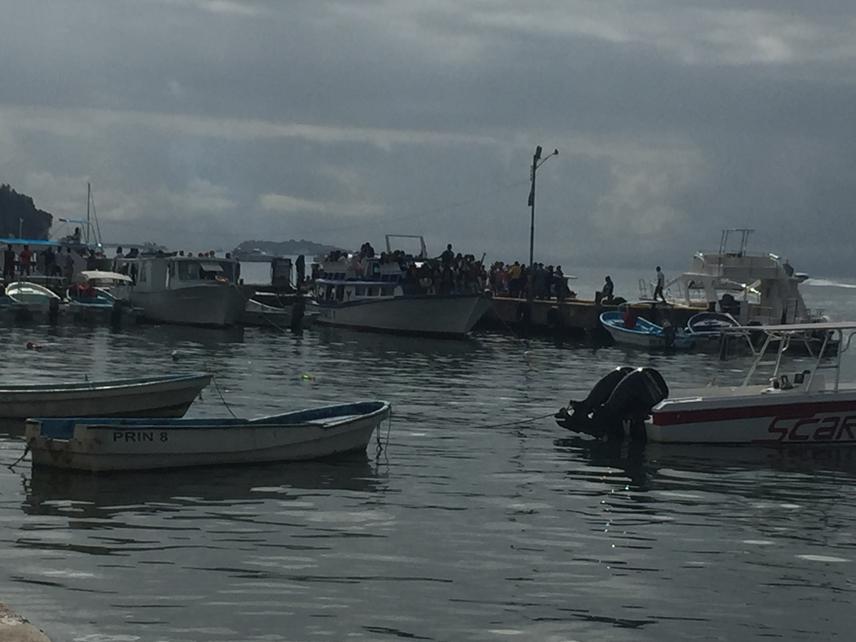Bonnie "Aireona" Raschke
The overall aim of my PhD project is to attain an interdisciplinary understanding of the impacts on human and cetaceans of the whale watching industry in the Caribbean.

Whale watching dock in Samana.
My interdisciplinary project examines aspects of the social, ecological, and economic consequences of Caribbean whale watching (WW) and associated conservation. This industry has the potential to educate visitors and locals about cetaceans, inspire environmentally friendly behaviors, and support local communities. As with tourism in general, these beneficial outcomes are not possible without a clear understanding of the industry's impacts, and effective management strategies. In many places WW is not regulated and can have detrimental impacts on target cetaceans, and it is unclear how much support for coastal communities this industry is truly providing. Due to this complexity, as well as the rapid rate at which this industry is growing, it is important to gain a more holistic understanding of WW and its relationship with local people and conservation.
The Rufford Foundation is supporting my field season, during which I will be gathering data through qualitative interviews with local people, WW operators and government officials in Caribbean WW communities in order to examine resident perceptions of the industry and associated conservation. Previous social WW research has focused almost exclusively on the experience of tourists and the impacts of their experience on their behavior. While this is integral to the ability of WW to support cetacean conservation, information on the impacts of the industry on the local people is also important. Without local support, the long-term success of conservation projects is uncertain, and WW cannot be considered a form of ecotourism if local experiences with the industry are primarily negative. The data from my project will provide insight into the current state of relations between local people, the industry, and associated cetacean conservation. This can then be used to provide suggestions for areas of potential improvement.
The economic component of my project will identify country characteristics such as infrastructure development, GDP, number of target species, etc. that may influence the economic success of the WW industry. This information will be valuable to countries looking to develop WW, such as Haiti. Finally, I will be synthesizing data on cetacean life history and behavior as well as past WW watching impact research in order to identify which Caribbean species may be more or less vulnerable to the impacts of WW. While the outcome of this part of my research will be heavily based on theory, it is essential to the regulation of WW, as its growth has greatly outpaced that of research.